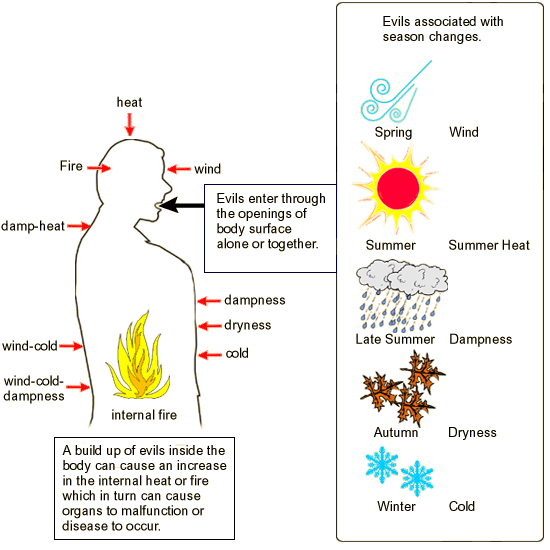
Resistance of Exterior Pathogens
The concept of "resistance to external pathogenic factors" refers to the body's ability to defend itself against harmful influences from the external environment, such as pathogens, toxins, and climatic factors. This concept is closely related to the body's immune system and its capacity to maintain balance and harmony.
TCM recognizes a vital energy known as Wei Qi or Protective Qi, which circulates on the surface of the body and serves as a defensive barrier against external pathogens.
Wei Qi is considered the first line of defence against invading pathogens and is responsible for maintaining the integrity of the body's exterior, including the skin and mucous membranes. When Wei Qi is strong and abundant, it forms a protective shield that prevents pathogens from entering the body. However, when Wei Qi is deficient or compromised, the body becomes more susceptible to external invasions.
TCM views the body as a holistic system where the exterior and interior are interconnected. External pathogenic factors, such as Wind, Cold, Heat, Dampness, and Dryness, can penetrate the body and affect its internal organs and systems. The strength of the body's exterior determines its ability to resist and expel these pathogenic factors before they penetrate deeper into the body and cause internal imbalances and illness. TCM organ systems, particularly the Lung and Spleen systems, play crucial roles in the body's immune response and resistance to external pathogens.
-
The Lung system governs the respiratory tract and is responsible for regulating the body's Wei Qi. It helps to disperse and eliminate pathogens from the body, particularly those related to respiratory infections.
-
The Spleen system, which includes the digestive organs, is responsible for producing Qi and Blood, which are essential for nourishing the body and supporting immune function. A healthy Spleen ensures proper digestion and absorption of nutrients, which in turn strengthens the body's overall resistance.
TCM emphasizes the importance of maintaining balance between Yin and Yang energies in the body to support optimal health and immunity. External pathogens are believed to disrupt this balance by causing excesses or deficiencies of Yin or Yang. For example, exposure to Cold or Dampness may lead to an accumulation of Cold or Dampness in the body, which can weaken the body's defences. TCM treatments aim to restore balance and harmony by addressing these imbalances and strengthening the body's ability to resist external pathogens.
In addition to treating illnesses, TCM emphasizes preventive measures to enhance the body's resistance to external pathogens. This may include lifestyle practices such as proper hygiene, adequate rest, stress management, dietary modifications, and regular exercise. Herbal medicine formulas and acupuncture treatments may also be used preventively to tonify Qi, nourish Yin, and strengthen Wei Qi, thereby reducing susceptibility to illness. By supporting the body's natural defences and addressing imbalances that make it more vulnerable to external pathogens, TCM aims to promote resilience, vitality, and overall well-being.